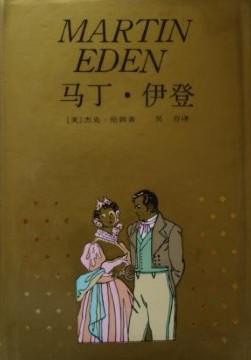-

马丁·伊登
在《马丁·伊登(珍藏本)》这部带有自传色彩的长篇小说中,杰克·伦敦不但倾注了他的全部心血,写下了自己如何在平庸的资产阶级鄙夷下含辛茹苦地读书和写作的经历,也尽情阐释了他个人的混杂着马克思主义的阶级观、斯宾塞的社会达尔文主义和尼采的“超人”说的社会见解。 -

Love of Life
-

WHITE FANG AND THE CALL OF THE WILD
-

To Build a Fire
-

Call of the Wild & White Fang
The Call of the Wild (1903) and White Fang (1906) are world famous animal stories. Set in Alaska during the Klondike Gold Rush of the late 1890s, The Call of the Wild is about Buck, the magnificent cross-bred offspring of a St Bernard and a Scottish Collie. Stolen from his pampered life on a Californian estate and shipped to the Klondike to work as a sledge dog, he triumphs over his circumstances and becomes the leader of a wolf pack. The story records the 'decivilisation' of Buck as he answers 'the call of the wild', an inherent memory of primeval origins to which he instinctively responds. In contrast, White Fang relates the tale of a wolf born and bred in the wild which is civilised by the master he comes to trust and love. The brutal world of the Klondike miners and their dogs is brilliantly evoked and Jack London's rendering of the sentient life of Buck and White Fang as they confront their destiny is enthralling and convincing. The deeper resonance of these stories derives from the author's use of the myth of the hero who survives by strength and courage, a powerful myth that still appeals to our collective unconscious. -

Martin Eden
The semiautobiographical "Martin Eden" is the most vital and original character Jack London ever created. Set in San Francisco, this is the story of Martin Eden, an impoverished seaman who pursues, obsessively and aggressively, dreams of education and literary fame. London, dissatisfied with the rewards of his own success, intended Martin Eden as an attack on individualism and a criticism of ambition; however, much of its status as a classic has been conferred by admirers of its ambitious protagonist. Andrew Sinclair's wide-ranging introduction discusses the conflict between London's support of socialism and his powerful self-will. Sinclair also explores the parallels and divergences between the life of Martin Eden and that of his creator, focusing on London's mental depressions and how they affected his depiction of Eden.